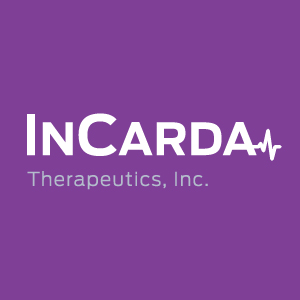 InCarda Therapeutics has announced the presentation of positive data from the open-label, dose-escalation Part A portion of the company’s multinational INSTANT Phase 2 clinical trial of InRhythm (flecainide for inhalation) in patients with recent-onset paroxysmal atrial fibrillation (PAF). Data were presented the American Heart Association’s Scientific Sessions 2020 (AHA 2020, 13 – 17 November, virtual). The company said that the study results provide the first proof of concept for inhaled flecainide as a potentially safe and effective therapeutic option for rapidly converting PAF to normal sinus rhythm (NSR).
InCarda Therapeutics has announced the presentation of positive data from the open-label, dose-escalation Part A portion of the company’s multinational INSTANT Phase 2 clinical trial of InRhythm (flecainide for inhalation) in patients with recent-onset paroxysmal atrial fibrillation (PAF). Data were presented the American Heart Association’s Scientific Sessions 2020 (AHA 2020, 13 – 17 November, virtual). The company said that the study results provide the first proof of concept for inhaled flecainide as a potentially safe and effective therapeutic option for rapidly converting PAF to normal sinus rhythm (NSR).
InRhythm is a novel inhaled therapeutic candidate designed to rapidly deliver flecainide, an antiarrhythmic agent, to the heart via the lungs to restore NSR and to relieve symptoms associated with acute episodes of PAF. The therapy is being developed initially for its use under medical supervision in a hospital, emergency room or physician office and subsequently as a portable treatment that can be self-administered by patients in a non-medically supervised setting (such as the home) to rapidly achieve conversion of PAF to NSR.
Harry JGM Crijns, professor, chair of cardiology and board member of the Cardiovascular Research Institute Maastricht (CARIM) at Maastricht UMC, Maastricht, the Netherlands and co-principal investigator of the INSTANT trial, presented data from Part A of the trial. The results demonstrated the rapid achievement of therapeutic plasma levels (Cmax >200ng/mL) of flecainide via oral inhalation with InRhythm. Approximately 80% of patients who received the study’s highest administered dose (120 mg) achieved a flecainide Cmax > 200 ng/mL. For all study participants who reached these therapeutic plasma levels, nearly 50 percent achieved a successful conversion from PAF to NSR. Importantly, those successful conversions occurred rapidly, with a median time to conversion of 3.6 minutes after the end of the administration of InRhythm (total inhalation time for InRhythm administration is eight minutes). The treatment was shown to be safe and well tolerated, and the majority of adverse events were transient, mild in severity and resolved without treatment.
“There is growing clinical and scientific evidence to support the importance of rhythm control in the overall management of atrial fibrillation,” said Jeremy N Ruskin, professor of medicine at Harvard Medical School and founder and director emeritus of the Cardiac Arrhythmia Service at Massachusetts General Hospital (Boston, USA) and co-principal investigator of the INSTANT study. “Currently available treatment options for the acute conversion of atrial fibrillation to normal sinus rhythm are limited and do not fully address the unmet needs of improving patients’ symptoms and quality of life and reducing healthcare costs. This novel therapy for rapid restoration of normal rhythm, if successful in pivotal clinical trials, has the potential to play a significant role in addressing these unmet clinical needs.”
Based on these positive study results, InCarda has commenced enrolment of Part B of the INSTANT study which includes a confirmatory cohort using the selected optimal therapeutic dose (120mg) and a pilot study referred to as the “patient-led sub-study.” In this latter study patients who have already experienced a safe cardioversion with InRhythm will receive training so that they can self-administer InRhythm under medical supervision when another (“recurrent”) episode of PAF occurs. In addition to current study sites in the Netherlands and Belgium, InCarda will start recruiting patients in the USA later this year.
“The data presented today from the INSTANT study provide the first proof of concept of this novel strategy to deliver flecainide via oral inhalation to rapidly restore NSR in patients with symptomatic episodes of recent-onset PAF. These data will be used to finalise the design of a multinational, Phase 3 trial of InRhythm to support marketing approval for in-hospital, medically supervised use. We expect to initiate this study in the first half of 2021,” said Luiz Belardinelli, chief medical officer of InCarda.
“With six million atrial fibrillation patients in the US contributing to over US$26 billion in annual healthcare expenditures, and more than 30 million atrial fibrillation patients worldwide, there is a tremendous opportunity for InCarda to uniquely address this important and growing need,” said Grace E Colon, chief executive officer of InCarda. “We look forward to the next steps in the development of this important new therapy and reporting on several key company milestones over the next year.”









